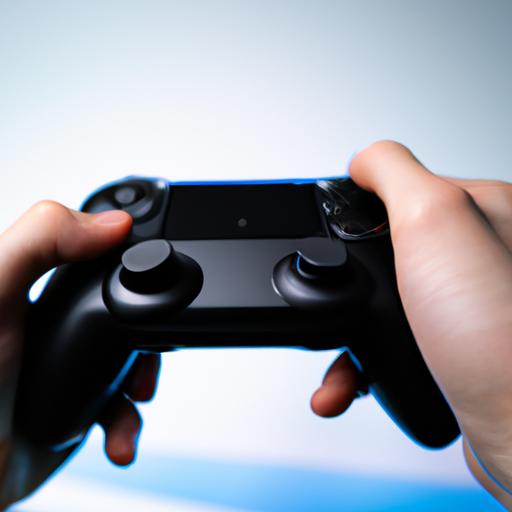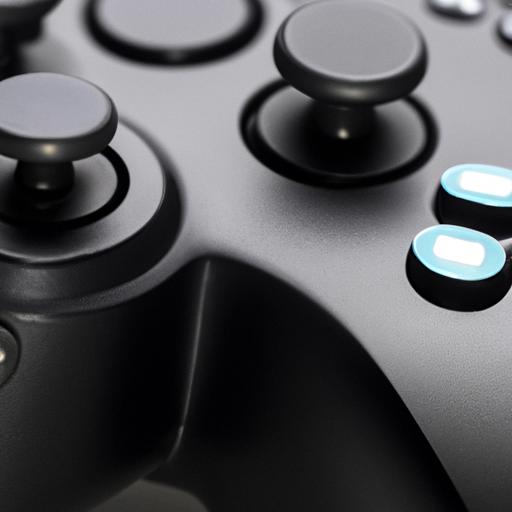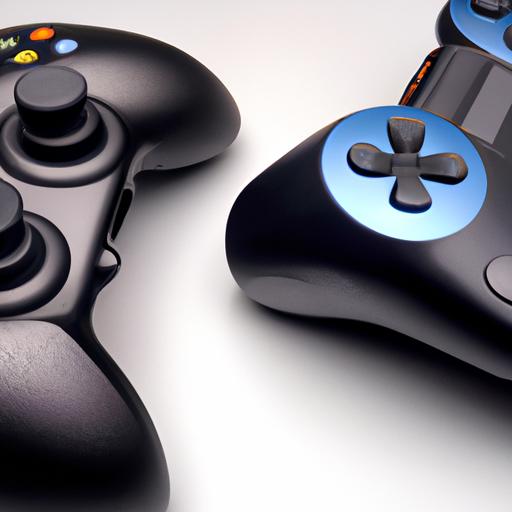What is the Difference Between Bluetooth and Proprietary Wireless Gaming Controllers?
As the world of gaming continues to evolve, the demand for high-quality gaming controllers has skyrocketed. With a myriad of options available in the market, it can be overwhelming to choose the right one. Two popular choices are Bluetooth and proprietary wireless gaming controllers. In this article, we will explore the key differences between these two types and help you make an informed decision.

Bluetooth Gaming Controllers
Bluetooth technology has become ubiquitous in the realm of wireless connectivity. Bluetooth gaming controllers utilize this technology to establish a seamless connection between the controller and the gaming device. The advantages of Bluetooth gaming controllers are manifold.
Firstly, Bluetooth controllers offer enhanced compatibility across various platforms. Whether you’re gaming on a PC, console, or even a mobile device, Bluetooth controllers can seamlessly connect to multiple devices without the need for additional adapters or accessories. This versatility makes them a popular choice for gamers who enjoy playing on different platforms.
Secondly, Bluetooth gaming controllers are known for their ease of use. With a simple pairing process, you can quickly connect your controller to your gaming device and start playing. The convenience of Bluetooth connectivity eliminates the hassle of cables and allows for a more comfortable gaming experience.
Some popular Bluetooth gaming controllers in the market include the Xbox Wireless Controller, DualShock 4 Wireless Controller, and the Nintendo Switch Pro Controller. These controllers offer a range of features and customization options to cater to different gaming preferences.

Proprietary Wireless Gaming Controllers
On the other hand, proprietary wireless gaming controllers utilize their own unique wireless technology. Unlike Bluetooth controllers, which rely on a standardized wireless protocol, proprietary wireless controllers have a dedicated wireless connection designed specifically for gaming.
One of the major advantages of proprietary wireless gaming controllers is their superior latency and responsiveness. Since these controllers have a dedicated connection, they can provide faster response times compared to Bluetooth controllers. This can be crucial in competitive gaming scenarios where split-second reactions can make all the difference.
Additionally, proprietary wireless controllers often offer extended battery life compared to their Bluetooth counterparts. This is because the dedicated wireless technology is optimized for gaming, resulting in efficient power consumption. Some proprietary wireless controllers also provide unique charging options, such as wireless charging pads, further enhancing convenience.
Popular examples of proprietary wireless gaming controllers include the Xbox Elite Wireless Controller and the Razer Raiju Ultimate. These controllers are renowned for their ergonomic design, customizable buttons, and advanced features tailored for professional gamers.

Comparison between Bluetooth and Proprietary Wireless Gaming Controllers
Now that we have explored the features of Bluetooth and proprietary wireless gaming controllers individually, let’s delve into the key differences between them.
Connectivity and Compatibility
Bluetooth controllers excel in terms of compatibility. They can seamlessly connect to a wide range of devices, including smartphones, tablets, PCs, and consoles. On the other hand, proprietary wireless controllers may have limited compatibility and are often designed for specific gaming platforms. If you primarily game on a single platform, a proprietary wireless controller may offer a more optimized experience.
Latency and Responsiveness
When it comes to latency and responsiveness, proprietary wireless controllers have the edge. With their dedicated wireless connection, these controllers can provide faster response times and minimal input lag. Bluetooth controllers, while still offering good performance, may have slightly higher latency due to the overhead of the Bluetooth protocol. For competitive gamers who demand the utmost precision, a proprietary wireless controller may be the preferred choice.
Battery Life and Charging Options
Bluetooth controllers are generally known for their decent battery life. However, proprietary wireless controllers often outshine them in this aspect. The optimized wireless technology used in proprietary controllers allows for extended battery life, ensuring uninterrupted gaming sessions. Moreover, some proprietary controllers offer unique charging options, such as hot-swappable batteries or wireless charging, providing added convenience for gamers.
Range and Signal Stability
Bluetooth controllers typically have a limited range, usually around 30 feet, due to the nature of Bluetooth connectivity. Proprietary wireless controllers, on the other hand, can offer a longer range, allowing for more flexibility in gaming setups. Additionally, proprietary wireless technology is designed to maintain a stable connection, minimizing any potential signal interference and ensuring a consistent gaming experience.
FAQ (Frequently Asked Questions)
Q: Are Bluetooth gaming controllers compatible with all gaming platforms?
A: Yes, Bluetooth gaming controllers are compatible with various platforms, including PCs, consoles, and mobile devices.
Q: Do proprietary wireless controllers have better response times than Bluetooth controllers?
A: Yes, proprietary wireless controllers usually provide faster response times and lower latency compared to Bluetooth controllers.
Q: Which type of controller offers longer battery life?
A: Proprietary wireless controllers generally offer longer battery life compared to Bluetooth controllers. The dedicated wireless technology optimizes power consumption.
Q: Can I use a Bluetooth controller with multiple devices simultaneously?
A: Bluetooth controllers typically allow connection to only one device at a time. However, some models may support multiple device pairing.
Conclusion
In conclusion, the main difference between Bluetooth and proprietary wireless gaming controllers lies in their connectivity, latency, battery life, and range. Bluetooth controllers offer excellent compatibility across multiple platforms, while proprietary wireless controllers provide superior latency, extended battery life, and greater range. Ultimately, the choice between the two depends on your gaming preferences and requirements. Whether you prioritize versatility or responsiveness, there is a gaming controller out there to enhance your gaming experience.